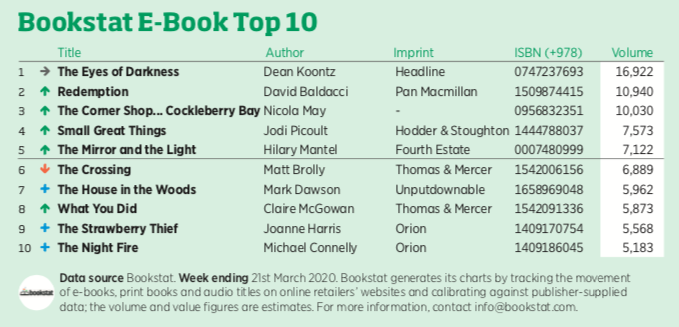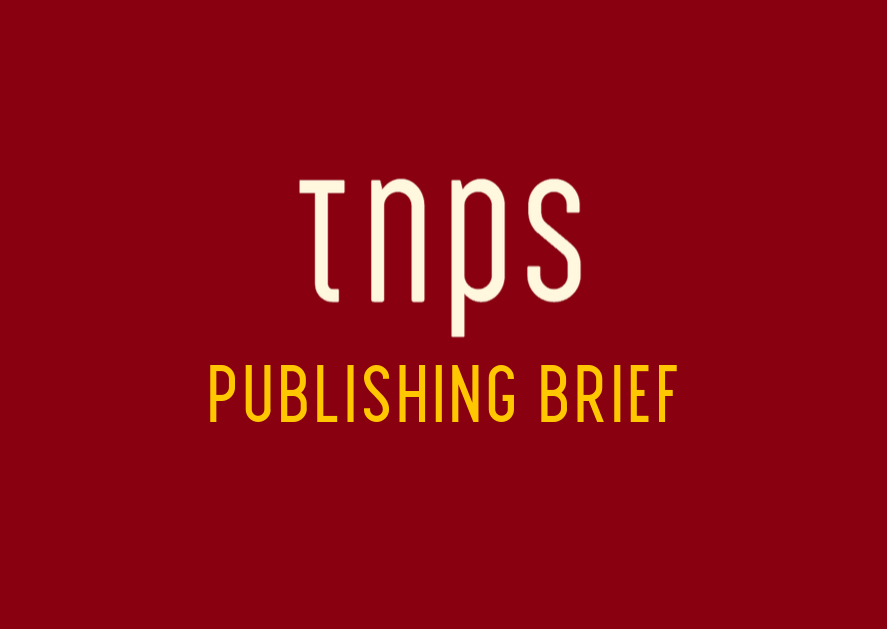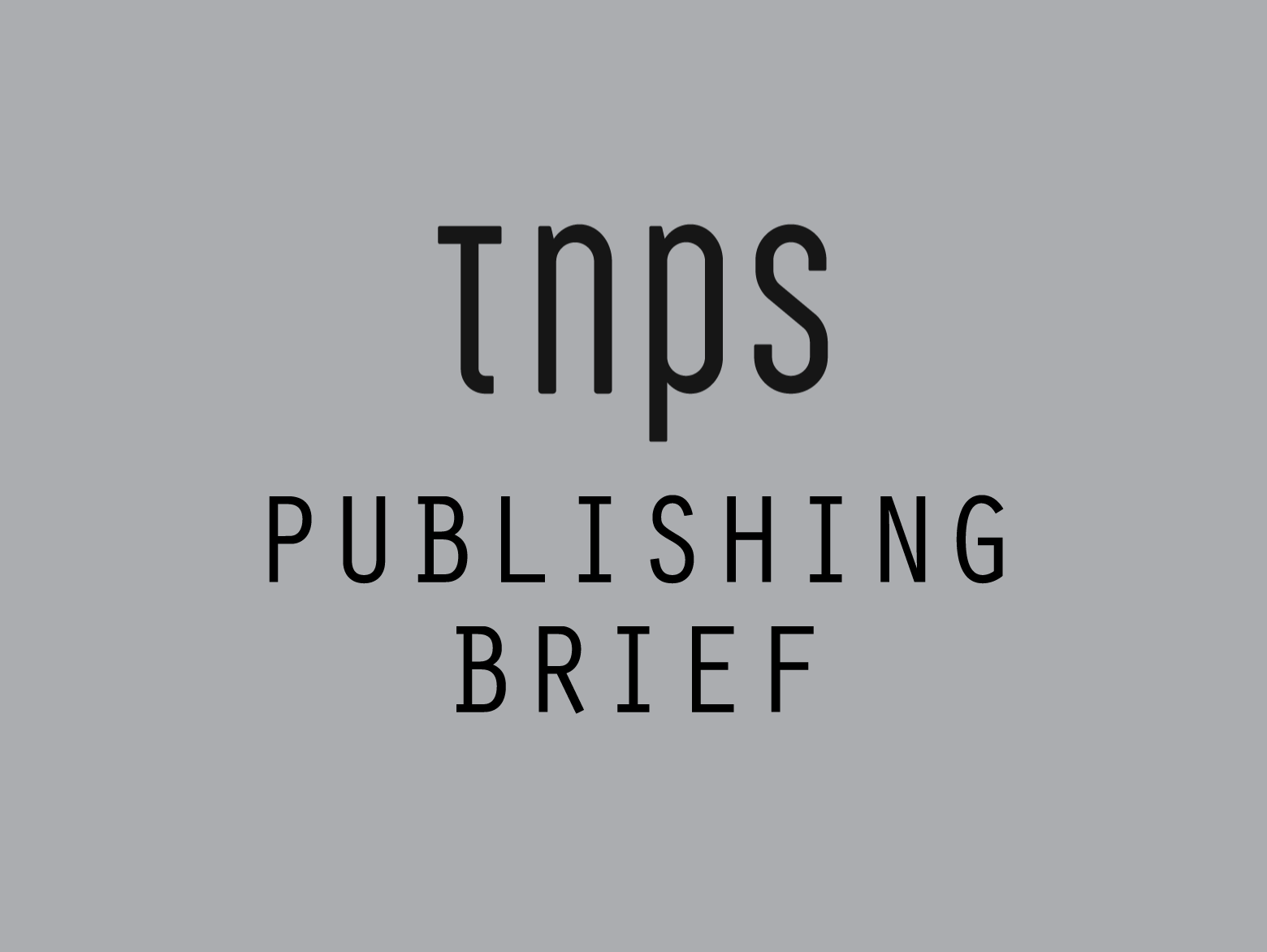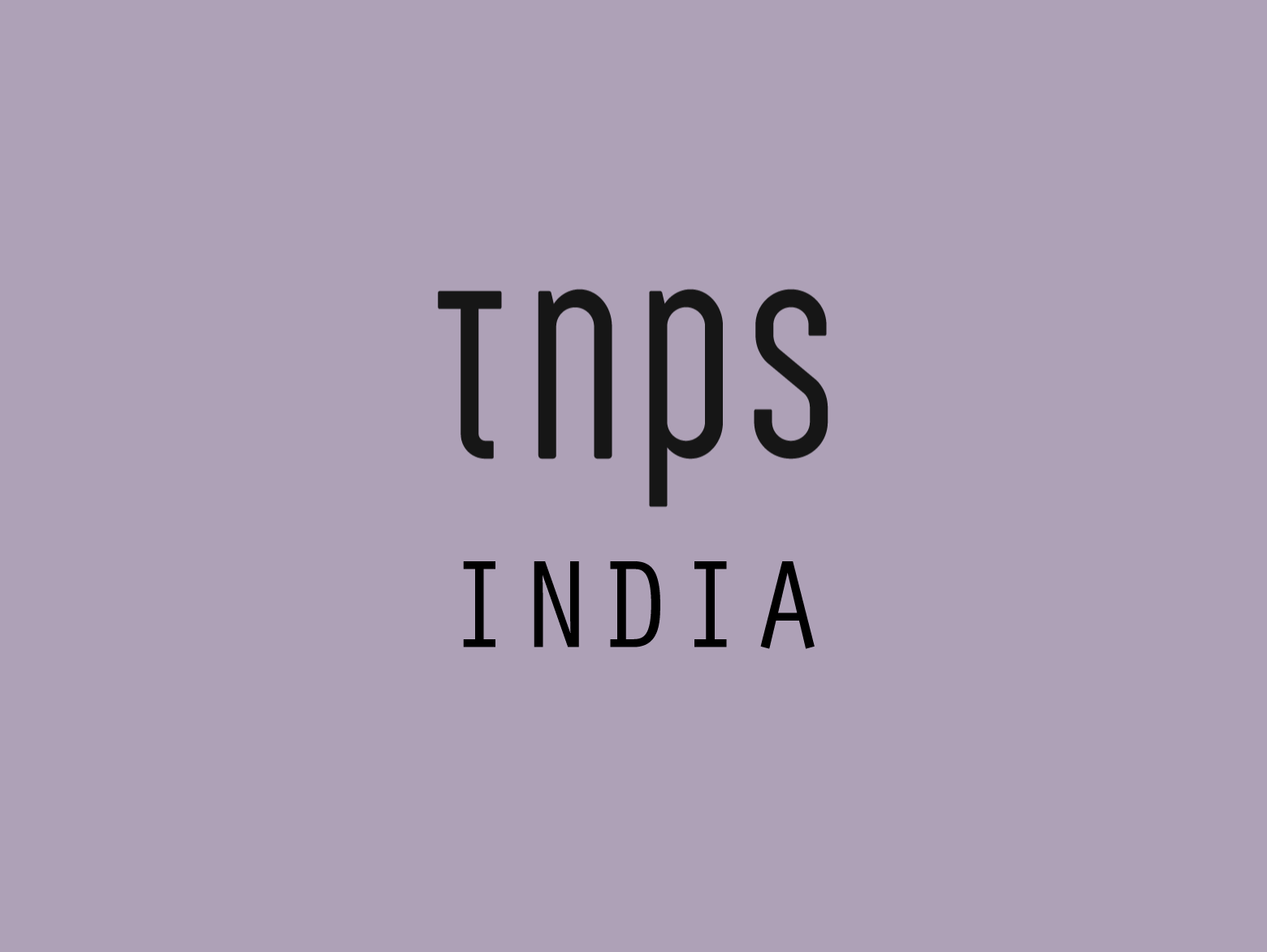Once again the UK’s The Bookseller has reproduced the Bookstat ebook bestsellers top ten chart in the UK for our delectation, and once again the numbers Bookstat numbers miss the mark, badly, when compared to actual numbers from the publishers concerned.
Hachette has since February been reporting to The Bookseller each week that the numbers produced by Bookstat and republished by The Bookseller are not entirely accurate.
Last week TNPS, no stranger to challenging the world according to Data Guy, picked up on the story.
This time both Hachette UK and PanMacmillan have reported to The Bookseller that the Bookstat numbers bear only a passing resemblance to reality, raising serious concerns about accuracy of the other five titles reported and about the Bookstat numbers in general.
This was the Bookstat screenshot The Bookseller offered us today:

The report came with the following caveat:
Clarification: Hachette has stated that The Eyes of Darkness sold 11,004 copies; Small Great Things 5,425; The Strawberry Thief 4,805 and The Night Fire 4,394. Pan Macmillan reports that Redemption sold 6,497 units.
Here’s what it actually means.
Hachette, which has the real numbers, tells us The Eyes of Darkness sold 11,004 copies. Bookstat, which calculates the numbers based on a number of questionable assumptions related to chart position as reported by the retailers through the week, guessed the sales volume at 16,922.
That’s an overestimate of 5,918.
Hachette says Small Great Things sold 5,425. Data Guy would have us believe 7,573 ebooks were sold.
An overestimate of 2,148 sales.
The Strawberry Thief , says Hachette, sold 4,805 copies. Bookstat guessed the number to be 5,568.
An over estimate of 763 sales.
The Night Fire, according to Hachette, sold 4,394 copies. Bookstat’s guess? 5,183.
An overestimate of 789 units.
While PanMacmillan reported that Redemption sold 6,497 units, not the 10,940 that Data Guy’s Bookstat came up with.
That’s an overestimate of 4,443.
That’s half the UK top ten bestelling ebook sales guessed wrong to the tune of an overestimate of 14,141 sales. And of course we have no idea how wildly removed from reality the numbers are for the other five titles in the top the list, or indeed the other titles in the top 100, top 1,000, top 10,000…
Data Guy says on the Bookstat website,
To be useful, sales data has to reflect what your customers are actually buying. When you rely on data that misses 37% of the ebook and audio dollars they spend each day, or 60% of the books they purchase online, you’re flying your business half-blind.
Bookstat is the only industry data service that tracks all online book purchases at the retail point of sale regardless of publisher type. Unlike Nielsen PubTrack and the AAP’s Statshots, which only tally self-reported sales from a narrow sector of today’s expanded publishing industry, Bookstat lets you see the whole market.
And what a difference that makes.
Bookstat reveals the hundreds of millions of additional online book purchases from nonreporting publishers that PubTrack and the AAP are blind to — untracked sales worth $1.25 billion a year.
Let’s hear part of that again:
When you rely on data that misses 37% of the ebook and audio dollars they spend each day … you’re flying your business half-blind.
This from the (data) guy who just guessed unit sales on five top-selling titles to be 43% higher than they actually were.
But of course its not just volume values that are being reported erroneously.
The Kindle retail value for The Eyes of Darkness is £2.99 (GBP), meaning the 11,004 actual sales grossed £32,900, a far cry from the £50,590 Bookstat would have us believe came in from the actual sales plus the extra 5,918 sales Data Guy magicked out of thin air.
That matters to the publisher and to the author, not to mention the taxman, and it matters to the industry, because if Bookstat’s other numbers are similarly creative then what that means for Data Guy’s claims about the size of the book market?
No-one doubts that the standard measures from Nielsen and co. do not capture the whole market, and that untracked sales from non-reporting sectors make up a substantial segment of the overall market.
But when Bookstat’s numbers can be shown to be as wildly at odds with reality as here, then what are we to make of Data Guy’s claim on the Bookstat website (talking about the US book market) that,
Bookstat reveals the hundreds of millions of additional online book purchases from nonreporting publishers that PubTrack and the AAP are blind to — untracked sales worth $1.25 billion a year.
Is that $1.25 billion another 43% overestimate?




